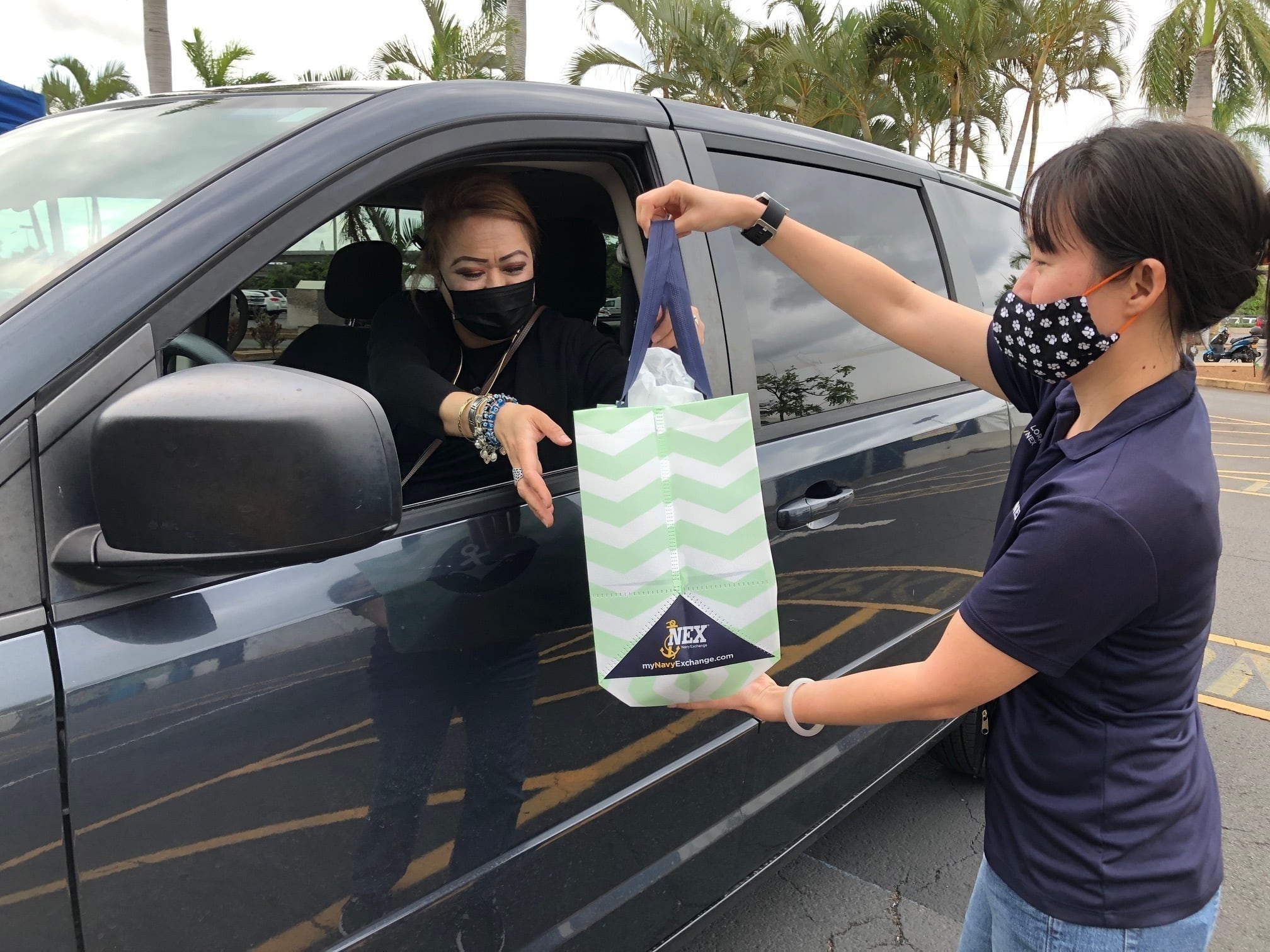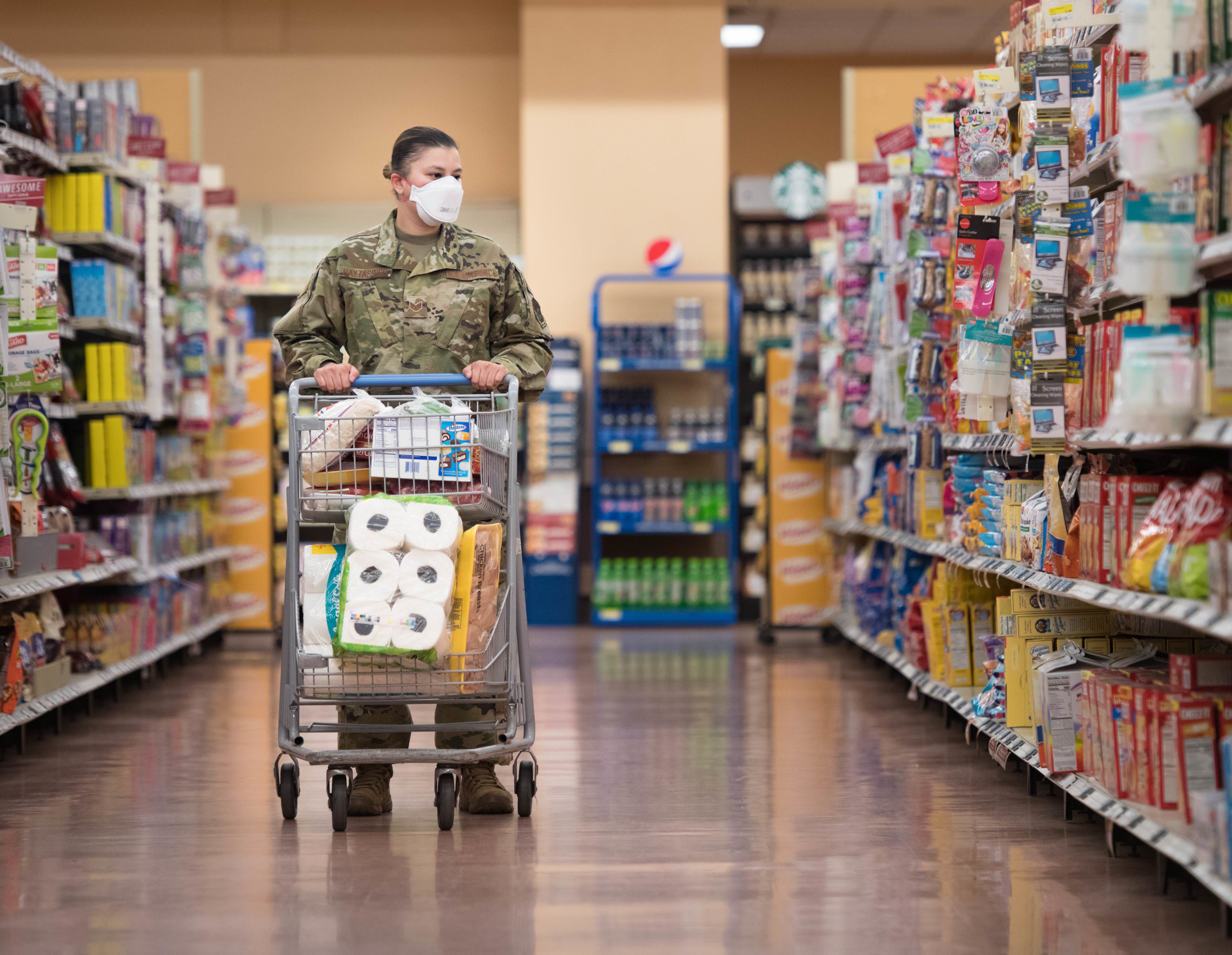Commissary customers on or near eight military installations in the U.S. will be able to test out a new doorstep delivery service scheduled to start June 1.
The Defense Commissary Agency awarded contracts to two veteran-owned companies on April 14 for delivery services. From April 17 through May 31, the contractors will integrate and test their technology with the commissary agency’s eCommerce system. The doorstep delivery starts June 1, and the contracts for the pilot program run for 90 days, through Aug. 30, according to contract documents.
The doorstep delivery service will be an extension of the current worldwide Click2Go program, where customers order their commissary items online, pay for it and then pick it up at the commissary curbside. This new delivery service will be available for locations within a 20-mile “driven” radius from the eight selected stores. The delivery fee in most cases will be less than $4.
Bill Moore, director of the Defense Commissary Agency, has made doorstep delivery one important aspect of his efforts to make it more convenient for customers to use their commissary benefit. The plan is to eventually deliver groceries from all commissaries in the continental U.S. to customers on and off base, in barracks or housing, offices.
The contracts were awarded to ChowCall, of Chesapeake, Virginia, for $177,084; and to YouUp Delivery Inc., of Roswell, Georgia, for $72,915, according to the contract documents.
ChowCall will provide the delivery service for five commissaries: Fort Belvoir, Virginia; Scott Air Force Base, Illinois; Fort Bragg (South commissary), North Carolina; MacDill Air Force Base, Florida; and Norfolk Naval Station, Virginia.

The customer’s cost for the doorstep delivery will be $3.97, in addition to the cost of their groceries, plus the 5% commissary surcharge. Customers can also tip their drivers. The hours of operation and the number of hours of lead time before the order is delivered will vary by commissary location.
YouUp Delivery will provide the delivery service for three commissaries: Fort Lewis, Washington; Miramar Naval Air Station and San Diego Naval Station, both in California. The customer’s cost for the doorstep delivery will range from $3.80 to $4.15, depending on the distance from the commissary. The hours of operation and the number of hours of lead time before the order is delivered will vary by commissary location.
“We wanted to make this affordable. It’s important to us to pass along as much of that commissary savings as possible to the military family,” said Harold Earls, co-founder of YouUp Delivery Inc.
Earls left the Army in late 2020 as a captain after being stationed with the Old Guard at Arlington National Cemetery. With two young children, he and his wife often shopped at Giant because of convenience, even though the commissary was cheaper, he said.
“My wife wondered why the commissaries didn’t do delivery,” he added.
They’ve built the company specifically for the purpose of serving the commissary agency and its customers in the military community, he explained. “We’ll provide convenience as well as savings, and provide military spouses with employment opportunities.”
The military spouses will be contracted with the company, he said. They’ll receive hourly wages plus tips. The wages are outlined in the contracts, too. For example, the hourly wage will be $19.63 for those delivering from the Fort Lewis commissary. To find out about contracting opportunities, visit www.youup.us/hire.

Commissary employees will pick the items from the shelves to fill the customers’ orders, so the contracts only involve picking up the groceries from the stores and delivering them to the customer. Thus, the commissary agency is making the system more efficient for the contractor from the very beginning by filling the orders, Earls said. The contracted delivery drivers pay for their own gas, but the company’s software will group customer orders into the most efficient delivery routes possible, Earls said.
Todd Waldemar, CEO of ChowCall, started a food delivery restaurant after returning from deployment and leaving the Marine Corps as a major in 2006. After delivering more than two million orders to military bases over 14 years, he started ChowCall in 2019, delivering orders onto military bases from favorite restaurants, just in time for the pandemic when these delivery services became critical for many. ChowCall is available at eight installations now.
“We’re growing very quickly and intend to be on most of the major bases by the end of the year,” Waldemar said.
With the commissary savings benefit of over 20% on average, he added, “we want to get those groceries at a great savings in the hands of the community. That’s what’s driving this whole endeavor.
“Our sweet spot is military bases. We deliver tons of stuff to service members in barracks and family housing, but also off base as well in surrounding communities,” he said.
ChowCall is hiring too. Visit ChowCall and scroll down to “Drivers” to find opportunities.
Waldemar said 64% of the staff is affiliated with the military, primarily veterans and dependents.
“We have a really big vision for creating tomorrow’s military marketplace,” Waldemar said.
Karen has covered military families, quality of life and consumer issues for Military Times for more than 30 years, and is co-author of a chapter on media coverage of military families in the book "A Battle Plan for Supporting Military Families." She previously worked for newspapers in Guam, Norfolk, Jacksonville, Fla., and Athens, Ga.




